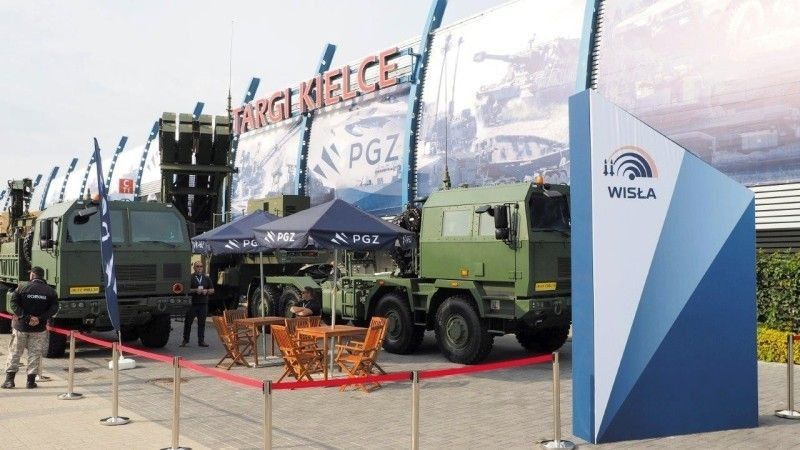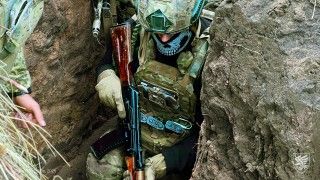- WIADOMOŚCI
Offset and the Armaments Agency
On January 20, 2022, a minor amendment to the offset law entered into force. This is the Act of December 02, 2021 amending the act - Public Procurement Law (PPL) and the Act on certain agreements concluded in connection with the execution of contracts of essential importance to state security. This amendment consists of only three articles. The first of them repeals two editorial units of the Public Procurement Law, which concerned the method of assessing the existence of the essential interest of state security (previous art. 12 PPL and art. 15 PPL). The second article removes from the offset act the reference to the - repealed by art. 1 - executive regulation to the art. 15 PPL. The third article states that the amendment shall enter into force within 14 days after its publication.In fact, the only change introduced is the repeal of the regulation of the Council of Ministers of February 12, 2013 on the procedure to be followed in the assessment of the existence of the essential interest of state security and the provision constituting a statutory delegation for this implementing act. The main idea of this amendment is to allow more flexible use of the derogation clause of art. 346 of the Treaty on the Functioning of the European Union, which enables the acquisition of military equipment with the exclusion of the rigors of the public procurement law and the use of offset.

This amendment seems irrelevant at first glance. However, it is part of a number of other changes introduced by the Ministry of Defence in recent months. It is, of course, about "renaming" of the Armament Inspectorate into the Armaments Agency. For the sake of explanation, I would like to quote a fragment of the regulation No. 74/MON of the Minister of Defence of December 01, 2021 on the Armaments Agency. This act defines, i.a. the tasks of the Armaments Agency, and they include:
- carrying out tasks related to preparing market analyses in terms of the possibility of acquiring military equipment and services for the needs of the Armed Forces of the Republic of Poland and the implementation of the process of acquiring military equipment and services, along with the preparation and implementation of construction works closely related to this military equipment,
- tasks implementation in the field of scientific research and development works aimed at increasing the level of operational capabilities of the Armed Forces of the Republic of Poland,
- implementation of projects related to the acquisition and management of intellectual property rights for the needs of the Armed Forces of the Republic of Poland,
- implementation of tasks of the Minister of Defence resulting from the provisions of the Act of June 26, 2014 on certain agreements concluded in connection with the execution of contracts of essential importance to state security,
- concluding and supervising the implementation of public procurement contracts, in the scope referred to in point 1, and supervising the offset contracts.
Speaking about the amendment to the offset law and the Armaments Agency, it is also worth recalling the decision No. 164/MON of the Minister of Defence of November 22, 2021, repealing the decision on the detailed procedure and rules of conduct in the development of assumptions for the offset offer, the draft offset agreement, evaluation of the offset offers and conducting negotiations in order to conclude an offset agreement. Additionally, the decision No. 163/MON of November 22, 2021, provides that the supervision over the performance of the offset agreements is exercised by the Head of the Armaments Agency.
That is all about the plain facts. Turning now to the opinion, it can be said that the Armaments Agency is now playing a dominant role in the sphere of broadly understood offset. The Armaments Agency now combines both the functions of the unit dealing with the purchase of military equipment and making decisions regarding the need to implement offset in relation to that purchase. At this point, we can only applaud and say "FINALLY"! I do not want to evaluate the reasons and the manner of carrying out the reorganization at the Ministry of Defence. Nevertheless, the concentration of purchasing and offset tasks in one hand should be assessed as positively as possible.
I expressed my opinion and now I will justify it briefly. It is necessary to recall a few truths that are often forgotten, and which I would like to be remembered by every person who hears the word "offset" (in the context of arms purchases in Poland):
Firstly, offset costs money. Offset is not any gift offered to us by "the American uncle. We payfor the offset using our money. It is true that our politicians (from the beginning of the offset in Poland) love to pride themselves on the amounts negotiated under the offset. On the basis of the previous offset act, they could even provide the values of the offset costs increased by the multipliers used at that time (an amount multiplied by five looks much more impressive). However, politicians usually forget to say that the amount they quoted was spent from our shared money. As part of some orders, the offset value is hidden by increasing the price of the offered order.
Recently, however, we really like to buy military equipment in the USA, and we usually buy it under the Foreign Military Sales program. Well, let's take a look at the application of the provisions of the Defense Federal Acquisition Regulation Supplement (DFARS), which are the equivalent of the military part of our Public Procurement Law. DFARS 225.7303-2(a)(3) indicates, that a U.S. defense contractor may recover all costs incurred for offset agreements with a foreign government or international organization if the LOA is financed wholly with foreign government or international organization customer cash or repayable foreign military finance credits. As you rightly suspect, American suppliers are eager to take advantage of this opportunity. So the next time we hear a politician boasting about the value of the negotiated offset, let's think about the benefit we will have from this expense. It is easy to spend money that isn't yours, it's harder to do it wisely.

Secondly, offset costs money. This time it costs the offsetee. The offset is sometimes treated as a gift offered to Polish armaments entrepreneurs, for which they should be extremely grateful. In the worst case, the gift will not be useful to them, and maybe they will be able to earn something thanks to the offset. Sometimes it happens this way. However, you should remember about the costs of offset absorption. Sometimes this cost is not significant. Just collect the received technical documentation, send a few employees for a week's training to the other end of Poland and take part in a few boring meetings with a lawyer. However, there are offset commitments that require significant financial outlays in order to be "accepted" - for example, they require the development of land and construction of a production hall. If there is a certain amount of money to be made, you may decide to do it. However, if there is no certainty in this respect, why should I accept this "gift" and expose the company I represent to damage, while myself to a charge under Article 296 of the Penal Code? For those curious of the answers – because the owner's supervision orders me to.
Since offset is about gain (uselessness), not about value, it is undoubtedly that the one who deals with the purchase of military equipment should have the biggest knowledge on the subject of this usefulness. In its current form, the offset role is subordinated to the supply contract, its primarily role
is to ensure the acquisition of production or service capacity, which will be used for the purposes of the acquired military equipment. Undoubtedly, it is highly desirable that there is a coherent plan on what equipment to buy, how to service and modernize it over its life cycle, and what related capabilities Polish defence contractors should acquire. For such a plan to be efficiently developed, decision makers must be structurally integrated and for years, this cooperation has failed. Originally (through their structures), the minister competent for the economy was responsible for offset matters, and the Minister of Defence was competent for the purchase of military equipment.
In the state organisation, the more structurally distant individuals are, the more difficult the flow of information and cooperation are. There were situations that during negotiating the offset agreement the Ministry of Economy had only a vague idea about the shape of the supply agreement. The Armaments Inspectorate (and previous units) was reluctant to use offset agreement, as it involved structurally unrelated units in the decision-making process (thus prolonging the procedure and increasing the price of the contract). The change introduced by the new offset act of 2014, consisting in transferring the offset liability to the Ministry of Defence, was necessary due to the need to ensure compliance of the application of the offset practices with the derogation clause of Art. 346 TFEU. Nevertheless, it was also beneficial, as it brought closer the units negotiating the offset and supply contracts. The Offset Agreements Office and the Armament Inspectorate performed at least the tasks of the same Minister.
Still, the biggest problem with offset is the lack of a sufficiently coherent vision of how to use the capabilities obtained by the Polish defence industry. When deciding on offset, we should know in advance why we spend the funds on it, what benefit we will have, how we involve the offsetee in this process, in short it is a quasi business plan for the acquired capacity. This capacity is often useful, because remember that a significant part of expenditure on military equipment relates to its entire life cycle. The purchase itself is only the beginning of long-lasting and painful costs. Besides the financial issues, it is highly desirable to have the serviceability of the military equipment in use. It is hard to imagine that, in hazardous conditions, any equipment servicing - beyond minor repairs - would require packing and sending to the US.
Offset treated as a tool, and not as goal in itself, is useful. It increases the possibilities of the contracting authority, for example in the sphere of negotiations with foreign suppliers. As with a screwdriver, it can be very useful and everyone should get one. However, this does not mean that we should have a mania for buying screwdrivers and buy them periodically for ourselves with other people's money. Nor does it mean that we should use a screwdriver for all domestic tasks, for example as a fork. The usefulness of the offset for a supply contract can only be discussed in the broader context of the strategy envisaged for the military equipment to be purchased. When evaluating the changes taking place from this perspective, we should express our approval for the concentration of purchasing and offset tasks in one hand.
dr Stanisław Michałowski, KW Kruk and Partners Law Firm














